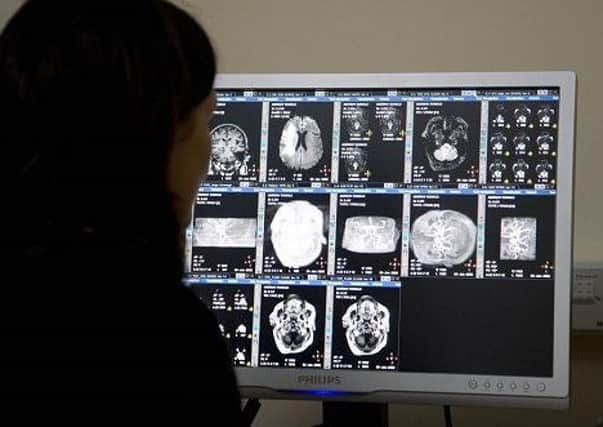Number of Scots stroke survivors reaches ten-year high


NHS Scotland figures show 128,949 people in Scotland were living with the impact of a stroke in 2018-19, an increase of 16,346, or 15 per cent, on 2009-10.
A report by the charity Chest Heart and Stroke Scotland last year suggested 29 per cent of people who have had a stroke want more access to therapists and are also two to three times more likely to have depression.
Advertisement
Hide AdAdvertisement
Hide AdChief executive Jane-Claire Judson is now calling on the Scottish Government to increase the number of specialist nurses and therapists as well as more funding to help third sector support as part of its Right to Rehab campaign.
She said: “We’ve clearly made progress helping people survive strokes in Scotland but there isn’t enough support to help them really live.
“Stroke survivors tell us that they get so much care in hospital but once they come out they feel alone and need help.
“Quick access to physios and speech and language therapists is patchy across the country and there is nowhere near the integration needed between the NHS, councils and charities to properly meet demand.”
She added: “The Scottish Government needs to be bold and commit to delivering a Right to Rehab in Scotland.
“That will give every stroke survivor in Scotland a guarantee of equal access to support that helps them get back to the things they love doing.
“This is the next bold policy reform needed in our health and care services.”
Paula Leask, a rehabilitation support co-ordinator with the charity, had a stroke when she was 29 while she was ceilidh dancing with her husband at a friend’s wedding in 2015.
Advertisement
Hide AdAdvertisement
Hide AdDuring her recovery she received care and support from the charity’s nurses at Dr Gray’s Hospital in Elgin, prompting her desire to help other stroke survivors.
Ms Leask said: “I was in such a dark place after my stroke but I managed to get through it because of the love and support of amazing people around me.
“The rehabilitation support I got was so important to my recovery. It really is the difference between just getting by and really living. I’m now helping stroke survivors and their families at Chest Heart and Stroke Scotland.”
She added: “Now that I’m in a better place physically and emotionally and made it to the other side it feels so important to me that I help someone in their recovery like I was helped in mine.
“I want to give people hope for the future and help them move forward with their lives.”
The British Association of Stroke Physicians said earlier this year there was a “significant and growing shortage of stroke consultants” in the UK, with around four in ten hospitals providing stroke care having an unfilled consultant post – compared with less than three in ten in 2014.
It said immediate access to procedures such as intravenous thrombolysis and mechanical thrombectomy can significantly decrease the risk of long-term disability, and warned that a lack of specialist staff “is limiting the ability of the NHS to deliver the latest medical advances and best treatment to stroke patients”.